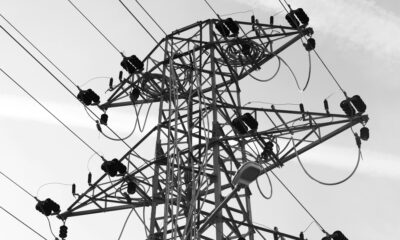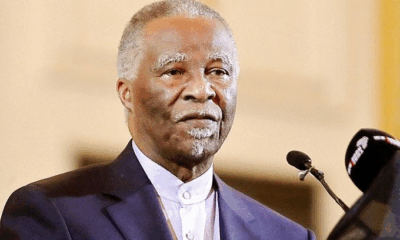News
MK Party Calls for Transparency in R9.5 Billion Battery Storage Deal

South Africa’s push for a more stable and sustainable energy future just hit a political speed bump. While the government celebrates a massive R9.5 billion investment in battery storage, the uMkhonto weSizwe (MK) Party is raising serious concerns about how the deal was handed out — and to whom.
A Game-Changer for the Grid — But at What Cost?
On 30 May 2025, Electricity and Energy Minister Dr Kgosientsho Ramokgopa took to the podium with what looked like good news: the appointment of Mulilo Energy and Scatec as preferred bidders for five major battery storage projects under the Battery Energy Storage Independent Power Producers Procurement Programme (BESIPPPP). These projects will inject 616 MW / 2,464 MWh of storage capacity into the national grid — a much-needed upgrade in a country where load shedding is still part of daily life.
But almost as soon as the announcement was made, eyebrows began to rise. Four out of the five contracts — the lion’s share — went to Mulilo Energy, a private energy company chaired by none other than former Eskom COO Jan Oberholzer.
MK Party Isn’t Buying the “Success Story”
While Minister Ramokgopa hailed Mulilo as a proudly South African company leading the renewable charge, the MK Party isn’t convinced everything was above board. MK Party spokesperson Nhlamulo Ndhlela issued a formal letter to the ministry, demanding the release of all bid adjudication documents within a week. If that doesn’t happen, they say they’ll be heading to court to suspend the contracts.
Their concern? That Mulilo’s ties to a former top Eskom official may have helped them clinch the deal — raising uncomfortable questions about fairness, political influence, and whether South Africa’s procurement processes are truly transparent.
Is Mulilo Too Close to the Power Switch?
Mulilo’s growth has been nothing short of meteoric. After winning five out of eight projects in the previous round of BESIPPPP bids, they’ve now bagged another four. All these projects are conveniently located near Eskom substations in the Free State, further raising suspicions among critics.
Then there’s the timing: Oberholzer was appointed chair of Mulilo in September 2023, just two months after exiting Eskom “by mutual agreement.” Some on social media have labeled the company a symbol of “white privilege” and questioned why its deals have escaped the scrutiny often faced by others, especially under past administrations.
Energy Security Meets Political Storm
For Minister Ramokgopa, this battery storage rollout is a key part of ending South Africa’s over-reliance on diesel-fueled generators and open cycle gas turbines. By storing surplus energy from renewables like solar and wind and releasing it during peak hours, these batteries promise to reduce electricity costs and greenhouse gas emissions.
In fact, the bidding process was so competitive that average project costs fell by 40% compared to Bid Window 1. The government sees this as a win — a sign that smart, clean energy is becoming more affordable and scalable.
But to the MK Party, these benefits don’t override the need for transparency. They argue that public trust in energy procurement is just as critical as keeping the lights on.
Big Money, Big Promises
The economic impact of these projects is hard to ignore. They’re expected to create 852 jobs, inject over R3.7 billion in local content during construction and operation, and funnel more than R3 billion in procurement spending into black-owned and small businesses.
Black shareholding in project companies will hit a minimum of 40%, and black women-owned businesses will benefit from over R560 million in contracts. There’s also a pledge of R184 million toward bursaries, skills training, and enterprise development.
For communities in the Free State, this could be transformative. But only if promises translate into tangible outcomes.
Accountability or Business as Usual?
At the heart of this storm is a simple question: Can South Africans trust that these multibillion-rand contracts are being awarded fairly?
The MK Party’s push for transparency taps into a wider frustration with how government tenders are managed. After years of scandals and accusations of state capture, skepticism remains high. This case is a reminder that while renewable energy might be the future, old patterns of patronage and secrecy still cast long shadows.
Shine a Light on the Process
South Africa is at a crossroads. The nation desperately needs new energy infrastructure, and battery storage is a smart move toward a cleaner, more reliable grid. But trust, once lost, is hard to regain.
The MK Party may not be alone in calling for a closer look. If government wants to secure not just energy, but public confidence, it must be willing to open its books.
Transparency shouldn’t be an afterthought — it should be the foundation.
{Source: Central News}
Follow Joburg ETC on Facebook, Twitter , TikTok and Instagram
For more News in Johannesburg, visit joburgetc.com



























